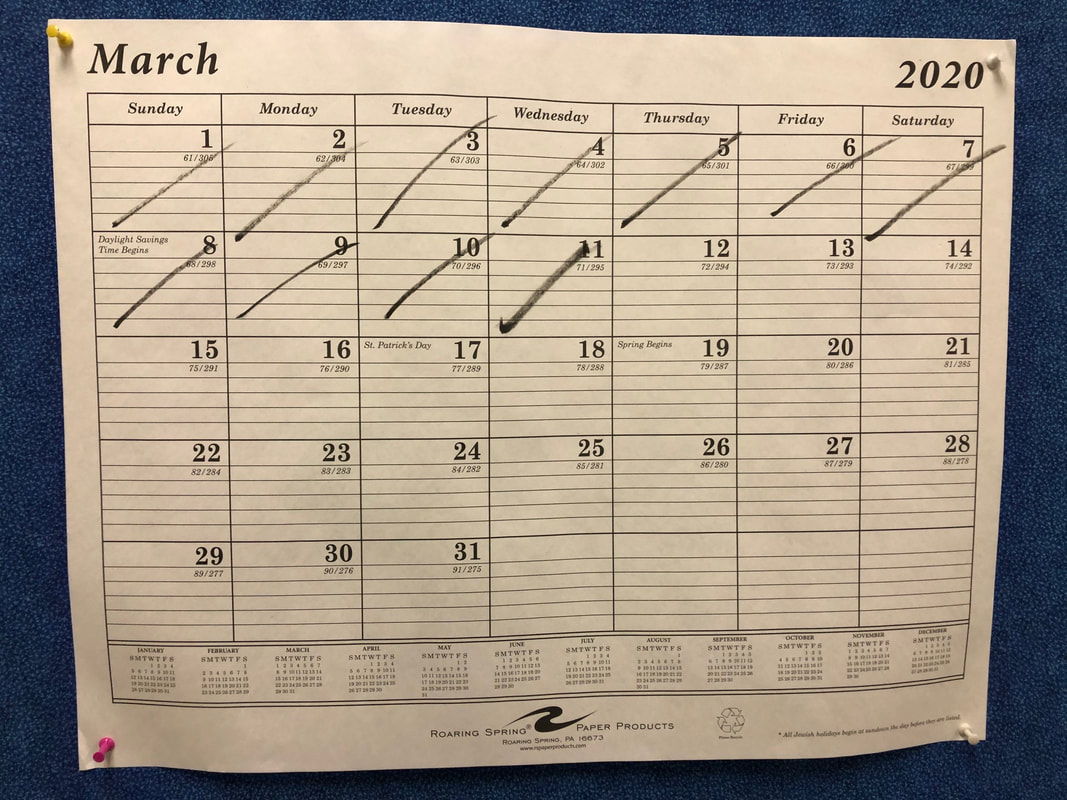|
One of my social media friends recently took an informal poll, asking if anyone had been swayed by political posts. I did not post my response, which makes me a poor online friend, I guess, but I did think about what I’d write. I also read the responses. There were several typical snarky responses, of course. Sadly, my social media voice has not always been completely free of sarcasm and condescension. Please forgive me. Most people in the poll suggested that no opinions really change, and I think that is probably true. Much of the attempted persuasion on social media feels sort of like an insulting carpet-bombing campaign. It conjures the fight or flight in us. I’m a fighter, so I spend a lot of time typing, and then, by the grace of God, deleting some really jazzy replies. One fellow observed that when you challenge people with information that dislodges them so violently from their existing world view, you’ve actually harmed them and your argument, if you are not, then, willing to walk along beside them in their disruption and virulent emotion. What wisdom! When I was a kid in the Southern Baptist Church, whose stated goal is evangelism of the world, there were always mission trips to far off places. I went on a number of these, and I think they are very important, and good. It struck me, though, that some of that zeal might be better spent at home, in our city, with our neighbors. Loving your neighbor can be difficult, though. Loving your husband or wife or children, your siblings or in-laws, can be a trial. There is no escaping their faults or annoying behaviors, and they can’t escape yours. One of the most upsetting trends I see today is the rise of cancel culture. There is something to be said about quieting reception of voices you know bring out your worst. There is something to be said for not answering fools according to their folly. Cancel culture is more insidious, though. It devalues not only the errors, misjudgments or blatant lies that people tell. It suggests that they, because of their faults, no longer matter. It commands acquiescence, backed by threat of the deletion of self. When Saint Paul the Apostle wrote the church in Galatia, he was addressing two groups in conflict over who was actually living the Christian life well. One group was particularly concerned with following all of the old rules, and there was some cancelling going on. Here is some wisdom in that letter for us: “Brethren, if someone is overtaken in any trespass, you who are spiritual restore such a one in a spirit of gentleness, considering yourself lest you also be tempted. Bear one another’s burdens, and so fulfill the law of Christ. For if anyone thinks himself to be something, when he is nothing, he deceives himself. But let each one examine his own work, and then he will have rejoicing in himself alone, and not in another. For each one shall bear his own load.” When I was younger, I thought (perhaps I was taught) that the temptation to worry about in the passage above was falling into the specific sin of the overtaken one. The context, however, suggests the temptation is actually to self-righteousness, which is perhaps the greatest threat any of us will face concerning the salvation of our souls. On its face the text above also seems contradictory. Early it says “bear one another’s burdens” but it ends with the admonishment that “each one shall bear his own load.” I believe this seeming contradiction is a call to mindfulness of one’s own failings, weaknesses, tendencies to be petty or snarky or mean, first. And then, only goodwill to those around us, an urgency to lift a finger to help them in any way you can, but not with patronizing condescension or insult. It says that if we feel we have the wisdom (if we consider ourselves among “those who are spiritual”) to address another’s failings, wrong perspectives, indulgence of evil systems or practices, we must do so with gentleness. I believe in the mercy of God, and that it should be at the core of our behavior toward all of our neighbors. Jesus smashed the money-changers tables in the temple, because he saw how humble, believing pilgrims were being scandalized. Righteous anger - protest - is necessary. However, I think we sometimes get the idea that Jesus did not care for the Pharisees, Scribes, Teachers of the Law, and that he only really valued shepherds and fishermen, ostracized tax collectors and sinful prostitutes. If you look closely, though, he was showing mercy for the arrogant ones, too, over and over. His first sermon, given as a child, was a dazzling performance for the leaders in the temple. The gospels are full of him entertaining the questions of temple rulers, and trying to rescue them from pride. We must share one another’s burdens, whatever they may be. This burden sharing must apply to all our neighbors, whether they be those oppressed by crooked and degrading systems or whether they profit from the illusion that everything is fair. We all need mercy. In the Sermon on the Mount, Jesus commanded the most revolutionary idea ever – “love your enemies, and pray for those who persecute you.” It is said that Saint Paisios of Mount Athos prayed earnestly for the repentance of Satan and his demons. If nothing else, that is a radical testament to his unwavering belief in the mercy of God. Recently, I had a long DM exchange with a dear friend, about a matter on which we disagreed. I’m not sure I changed his mind, and while he certainly gave me richer comprehension of his perspective, I wouldn’t say it changed my mind. Yet, the discussion was a deep blessing, because at the heart of it was our love and respect for one another, and that made the conversation fruitful. Saint James, the brother of Christ, who was thrown from a roof to a martyr’s death because he refused to cancel certain people, wrote for us this important warning: “Judgment without mercy will be shown to anyone who has not been merciful. Mercy triumphs over judgment.”
0 Comments
If we are to succeed this academic year, it will take teamwork, which requires humility and wisdom. I will begin teaching 138 (for now) students tomorrow at 7:45am. Sitting in my empty classroom, behind a camera, I’ll look out to students on screens in their homes. This tenuous connection will be held together (hopefully) via Zoom. We will do this for approximately five weeks and then begin hybrid integration back into the physical learning space, for some. A portion of my students will remain distance learners all year. This will be year 23 for me, and it feels like starting over. I remember when I was the youngster on my team at James Madison Middle in Tulsa, OK, with Ms. Wright, Ms. Washington, Ms. Wilkins and Dr. Colbert. They mothered and protected and taught me how to teach, and I am forever grateful. Their wisdom and example has proved invaluable. Now I’m getting to be one of the old-timers, but I feel more like a newbie than ever. I’m most proficient in two areas within my field. First, I strive to create an environment of order and intellectual challenge for my students, and they always know I care. Second, I’ve deeply studied history, and know how to connect it to their lives. I have weaknesses too. This year, one of those, my lack of technological savvy, is going to be right up front. This will be the thing my students get to see every day, and this is one of the reasons I need humility. When leading, we often feel the need to play the role of all-knowing expert. We wonder if our charges - students, athletes, employees or parishioners - will begin to doubt us, and wander away from our group goals, so we contemplate trying to hold onto a facade of perfect proficiency. It’s a compelling temptation, but I think it will cause us to fail. So, I’ve decided to do what I’ve tried to do down through the years. When I don’t know something, I admit it, and ask somebody who does. In many cases, this year, those experts will be my students, who’ve grown up connected to tech. They have something to teach us, too, and not just about tech. One of the greatest blessings of the teaching profession is how much we are able to learn from our brilliant little idealists and cynics. After we went virtual last semester, I had one lovely young student who would occasionally send emails gently explaining how my method of delivery in google classroom had extra steps that were confusing and unnecessary. When you get that message, there is a part of your nature that resists, wants to assert authority. I beg my fellow teachers, and also parents, to pause and listen. For me, this year, I’ll start out inviting counsel from all my little tech whizzes. I’ll remind them that while I bring skills they need, their role is also vital , for me and for their peers. We need one another. This academic year will be memorable, and it will be difficult. I’m hopeful it will also give us a unique opportunity for meaningful connection, service, growth and wisdom. There is a proverb that says “Pride leads to disgrace, but with humility comes wisdom.” Saint James, the brother of Christ, reiterates this, asking “Who is wise and understanding among you? Let them show it by their good life, by deeds done in the humility that comes from wisdom.” It’s circular. Wisdom and humility reinforce one another. Pride and foolishness do too. We’re in a troubling time, not only because of COVID, but also because so many of us get dragged into political shouting matches filled with vanity, scorn and bitterness. It is wearying, and it wounds. Sometimes, there are new wounds opened up on top of old ones. We need the peace that passes understanding right now. I pray a blessing on all educators and students and parents of students (also now educators) beginning this extraordinary year. Let us love, grant mercy, and listen with patience. Ultimately, grant that we may learn humility and wisdom from one another, finding peace for our souls. Press on. |
"Examine all things; hold on to the good."
-Saint Paul the Apostle Archives
September 2022
Categories |





